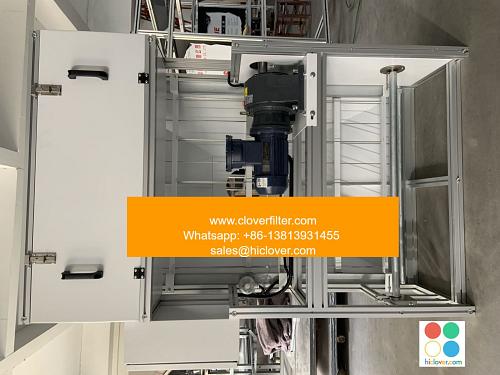Air Filter Report: The Impact of Indoor Air Quality on Health

Indoor air quality (IAQ) has become a significant concern in recent years, and for good reason. The air we breathe indoors can be up to five times more polluted than outdoor air, according to the United States Environmental Protection Agency (EPA). This is because indoor spaces can accumulate a range of pollutants, including particulate matter (PM), volatile organic compounds (VOCs), nitrogen dioxide (NO2), and other harmful gases. In this article, we will delve into the impact of indoor air quality on health, exploring the various application areas where air filters can make a significant difference.
Introduction to Indoor Air Pollution
Indoor air pollution is a complex issue, with multiple sources of pollution. These include building materials, furniture, and household products, which can release VOCs and other pollutants into the air. Additionally, human activities such as cooking, cleaning, and smoking can also contribute to indoor air pollution. The consequences of poor indoor air quality can be severe, ranging from respiratory problems and allergies to cardiovascular disease and even cancer.
The Importance of Air Filtration
Air filtration is a critical component of maintaining good indoor air quality. By removing pollutants and particulate matter from the air, air filters can help to reduce the risk of health problems associated with indoor air pollution. There are several types of air filters available, including HEPA filters, activated carbon filters, and ultrafine particle filters. Each of these filters has its own unique characteristics and application areas, making them suitable for different environments and uses.
Application Areas for Air Filters
Air filters have a wide range of applications, from residential homes and commercial buildings to industrial facilities and healthcare settings. In hospitals and clinics, air filters are used to remove bacteria, viruses, and other microorganisms from the air, helping to prevent the spread of infections. In industrial settings, air filters are used to remove hazardous chemicals and particles from the air, protecting workers from occupational hazards. In homes and offices, air filters can help to remove allergens and odors from the air, improving the overall indoor air quality.
The Benefits of Air Filtration
The benefits of air filtration are numerous and well-documented. By removing pollutants and particulate matter from the air, air filters can help to:
- Reduce the risk of respiratory problems and allergies
- Prevent the spread of infections and diseases
- Improve cognitive function and productivity
- Enhance overall well-being and quality of life
In addition to these health benefits, air filtration can also help to extend the life of building materials and equipment, reducing the need for repairs and replacements.
Conclusion
In conclusion, indoor air quality has a significant impact on our health and well-being. By using air filters to remove pollutants and particulate matter from the air, we can help to reduce the risk of health problems and improve the overall indoor air quality. With a range of application areas and benefits, air filtration is an essential component of maintaining a healthy and comfortable indoor environment. Whether you are a homeowner, business owner, or facility manager, investing in air filtration can have a significant impact on the health and well-being of occupants, making it a wise and cost-effective decision. You haven’t asked a question or provided any context. What would you like to talk about or ask? I’ll do my best to help.

